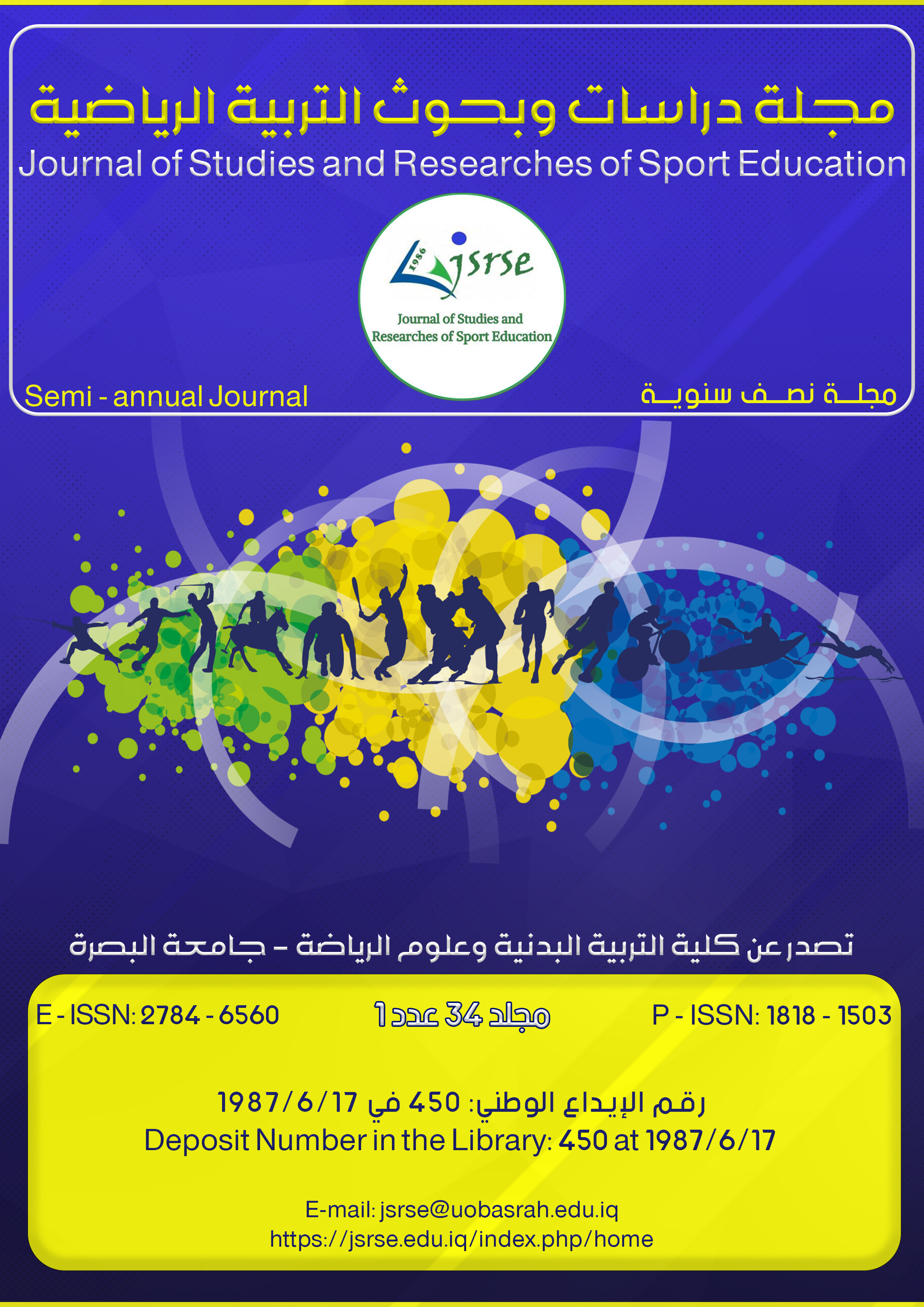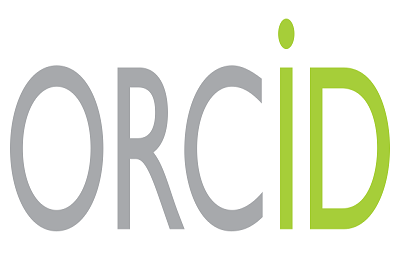الأدوار المتوقعة لمعتقدات الطلاب التحفيزية في تحسين المشاعر الايجابية خلال درس التربية الرياضية في المدارس الإعدادية التابعة لمديرية تربية كركوك
محتوى المقالة الرئيسي
الملخص
هدف البحث إلى:- تحديد مستوى المعتقدات التحفيزية لدى طلاب المدارس الإعدادية التابعة لمديرية تربية كركوك من وجهة نظرهم الشخصية.- تحديد مستوى المشاعر الإيجابية لطلاب المدارس الإعدادية التابعة لمديرية تربية كركوك من وجهة نظرهم الشخصية.- تحديد الأدوار المتوقعة للمعتقدات التحفيزية للطلاب في تحسين مشاعرهم الإيجابية خلال درس التربية الرياضية.
اعتمد الباحث المنهج الوصفي بالأسلوبين المسحي والارتباطي، وحدد الباحث طلاب المدارس الإعدادية التابعة لمديرية تربية كركوك ً ضمن (31) مدرسة إعدادية، واختار الباحث عينة البحث الرئيسة من مجتمع البحث وبعدد بلغ (375) طالباً، قسمهم إلى ثلاث عينات فرعية (الاستطلاعية، والإعداد، والتطبيق النهائي)، ولجمع البيانات قام الباحث بإعداد أداتين للقياس، تقيس الأولى المعتقدات التحفيزية لدى الطلاب ويبلغ عدد فقراتها (12) فقرة، بينما تقيس الثانية المشاعر الإيجابية خلال درس الرياضة ويبلغ عدد فقراتها (13) فقرة، وتتم الإجابة عنهما على وفق بدائل إجابة خماسية وهي (تنطبق كثيراً، تنطبق، تنطبق نوعاً ما، لا تنطبق، لا تنطبق كثيراً)، وبعد استخراج النتائج ومن خلال استخدام الوسائل الإحصائي واستنتج الباحث :- يمتلك طلاب المدارس الإعدادية التابعة لمديرية تربية كركوك بمستوى مرتفع من المعتقدات التحفيزية من وجهة نظرهم.- يتمتع طلاب المدارس الإعدادية التابعة لمديرية تربية كركوك بمستوى مرتفع من المشاعر الإيجابية خلال درس التربية الرياضية من وجهة نظرهم.
تفاصيل المقالة

هذا العمل مرخص بموجب Creative Commons Attribution-NonCommercial 4.0 International License.
المراجع
Aldewan, L. H., Abdul-Sahib, H. M., & al-Mayahi, S. J. K. (2013). Platform impact media super overlap (Alhiebermedia) to learn the effectiveness of the long jump for the Deaf Mute. Journal of Studies and Researches of Sport Education, 36, 27–41. https://www.iasj.net/iasj/article/94541
Burić, I., & Kim, L. E. (2020). Teacher self-efficacy, instructional quality, and student motivational beliefs: An analysis using multilevel structural equation modeling. Learning and Instruction, 66(January 2019), 101302. https://doi.org/10.1016/j.learninstruc.2019.101302
Cwik, S., & Singh, C. (2022). Longitudinal analysis of women and men’s motivational beliefs in a two-semester introductory physics course sequence for students on the bioscience track. Physical Review Physics Education Research, 18(2), 20111. https://doi.org/10.1103/PhysRevPhysEducRes.18.020111
Hameed; Ikhlas, & Kadhum; Sahira. (2022). Psychological Prosperity of University Students Practicing and Non-Practicing Sports. Modern Sport, 21(1), 0024. https://doi.org/10.54702/msj.2022.21.1.0024
Kadhim, M. A. , Aldewan, L. H., & Azzal, Y. H. (2020). The effect of teaching according to the Realistic Learning Model in teaching the technical performance of freestyle swimming for first grade student. Journal of Studies and Researches of Sport Education, 62, 330–343. https://www.iasj.net/iasj/article/205196
Kaur, S. (2023). Motivational Beliefs and Learning Strategies as Predictors of Academic Achievement of Prospective Teachers. The International Journal of Indian Psychology, Vol.11(Issue.4), 2383–2391. https://doi.org/10.25215/1102.238
Kohnke, L., & Foung, D. (2023). Promoting Positive Emotions during the Emergency Remote Teaching of English for Academic Purposes: The Unexpected Role of the Constructionist Approach. Education Sciences, 13(8), 765. https://doi.org/10.3390/educsci13080765
Li, L., Gow, A. D. I., & Zhou, J. (2020). The Role of Positive Emotions in Education: A Neuroscience Perspective. Mind, Brain, and Education, 14(3), 220–234. https://doi.org/10.1111/mbe.12244
Li, Y., & Singh, C. (2022). Inclusive learning environments can improve student learning and motivational beliefs. Physical Review Physics Education Research, 18(2), 20147. https://doi.org/10.1103/PhysRevPhysEducRes.18.020147
Lilian, A. (2022). Motivational beliefs, an important contrivance in elevating digital literacy among university students. Heliyon, 8(12), e11913. https://doi.org/10.1016/j.heliyon.2022.e11913
Mashkoor; Nahida, & Mohamed; Lamaa. (2017). Study the level of social interaction and its relationship to aggressive behavior on the field for some youth teams. Scientific Journal of Sports Sciences and Arts, 016(016), 59–67. https://doi.org/10.21608/ijssaa.2017.69736
Oudah, M. J. , Aldewan, L. H., & Hchaya, H. M. (2022). Building a Scale of Systems Thinking in Tennis. . Journal of Studies and Researches of Sport Education, 32(2), 18–27. https://doi.org/https://doi.org/10.55998/jsrse.v32i2.341
Paakkanen, M. A., Martela, F., & Pessi, A. B. (2021). Responding to Positive Emotions at Work – The Four Steps and Potential Benefits of a Validating Response to Coworkers’ Positive Experiences. Frontiers in Psychology, 12. https://doi.org/10.3389/fpsyg.2021.668160
Pinto-Guillergua, V., Gómez-Carbonel, P. E., Montoya-Cantoral, E., Mamani-Calcina, J., & Villalba-Condori, K. O. (2023). Self-motivational Beliefs that Enhance Self- regulation of Students in Virtual Courses. CEUR Workshop Proceedings, 3353, 69–74.
Saleem, M. S., Isha, A. S. N., Awan, M. I., Yusop, Y. B., & Naji, G. M. A. (2022). Fostering Academic Engagement in Post-graduate Students: Assessing the Role of Positive Emotions, Positive Psychology, and Stress. Frontiers in Psychology, 13(August). https://doi.org/10.3389/fpsyg.2022.920395
Schweder, S. (2020). Mastery goals, positive emotions and learning behavior in self-directed vs. teacher-directed learning. European Journal of Psychology of Education, 35(1), 205–223. https://doi.org/10.1007/s10212-019-00421-z
Slåtten, T., Lien, G., Evenstad, S. B. N., & Onshus, T. (2021). Supportive study climate and academic performance among university students: the role of psychological capital, positive emotions and study engagement. International Journal of Quality and Service Sciences, 13(4), 585–600. https://doi.org/10.1108/IJQSS-03-2020-0045
Suleiman, S. M. (2010). Data collection tools in psychological and educational research: Vol. First edition (The world of books, Ed.).
Tareen, H., Haand, M. T., Muhammadi, A., & Zhang, B. (2023). Self-regulated learning and motivational beliefs: Findings from a survey of EFL undergraduates in Afghanistan. Issues in Educational Research, 33(2), 781–797.
Volet, S., Seghezzi, C., & Ritchie, S. (2019). Positive emotions in student-led collaborative science activities: relating types and sources of emotions to engagement in learning. Studies in Higher Education, 44(10), 1734–1746. https://doi.org/10.1080/03075079.2019.1665314
Wall, T., Russell, J., & Moore, N. (2017). Positive emotion in workplace impact. Journal of Work-Applied Management, 9(2), 129–146. https://doi.org/10.1108/JWAM-07-2017-0017
Wang, J., Zhou, C., Song, Q., & Xu, F. (2023). The relationship between teacher support and positive emotions in Chinese higher vocational students: multiple mediating effects of procrastination behavior and interpersonal assistance. Frontiers in Psychology, 14(June), 1–13. https://doi.org/10.3389/fpsyg.2023.1201864





 IASJ
IASJ CC-BY-4.0
CC-BY-4.0 turnitin
turnitin ISSN
ISSN DOAJ
DOAJ Crossref
Crossref GoogleScholar
GoogleScholar Orcid
Orcid